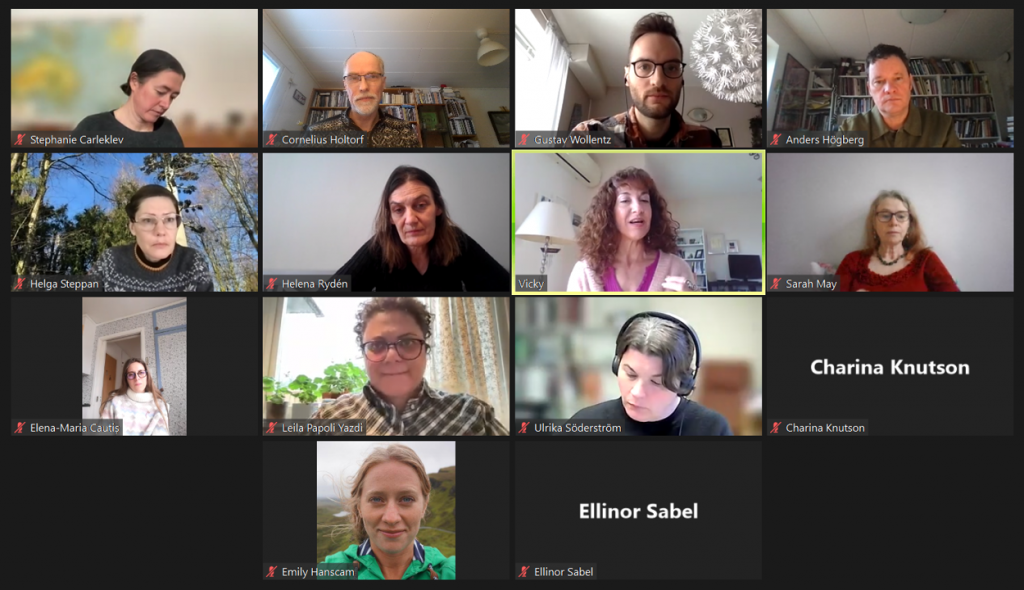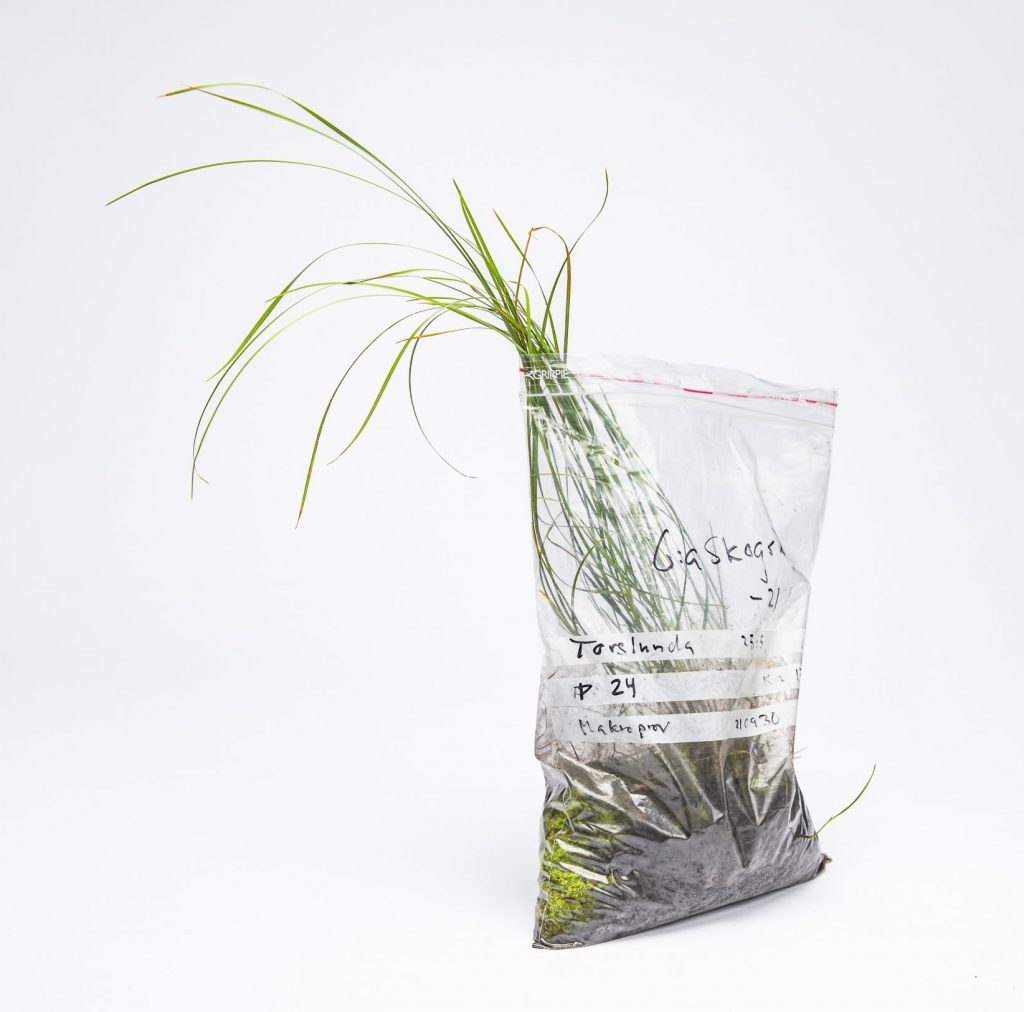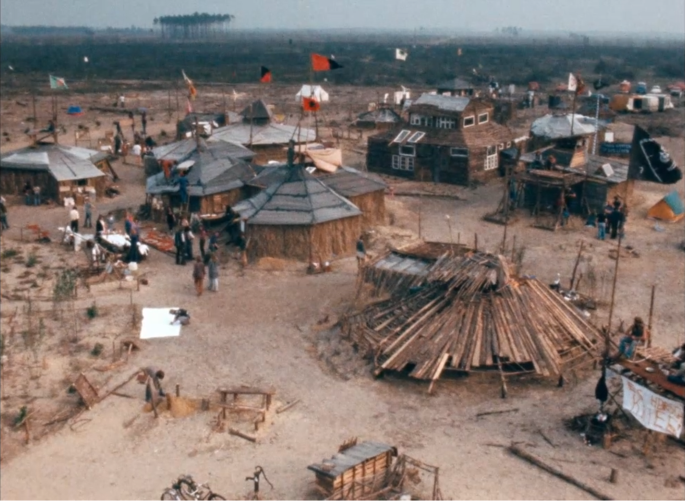Various activities January – March 2023
2023-03-31
Cornelius Holtorf joined the Swedish Foresight Network (Jan 2023).
“Här samlas vi som är verksamma inom framsyn, framtidsstudier, scenarioanalys och liknande inom näringsliv, akademi och offentlig sektor. Gruppen syftar till att lära av varandra, dela exempel och bygga relationer. Framtidsnätverkets syfte är att främja framtidskunnighet, det vill säga förmågan att enskilt och tillsammans med andra identifiera, analysera och använda sig av troliga, möjliga och önskvärda framtider. Framtidsnätverket uppnår detta syfte genom att skapa mötesplatser där offentliga, privata och ideella aktörer kan utforska, testa och dela erfarenheter om framsyn. På så sätt bidrar Framtidsnätverket till att stärka kapaciteten att proaktivt hantera framtida möjligheter och utmaningar på ett sätt som stärker resiliensen hos deltagande organisationer och samhället i stort.”
Cornelius Holtorf attended parts of the hybrid Symposium “The Future of Futures” to mark the retirement of UNESCO Chairholder Ted Fuller as Editor in Chief of Futures; the Journal of Interdisciplinary Study of Futures, Anticipation and Foreight, London, UK (25 Jan 2023).
As a member of the World Heritage Council, Cornelius Holtorf submitted suggestions for the Draft Management Plan 2023-2030 of the UNESCO World Heritage Property Agricultural Landscape of Southern Öland (29 Jan 2023).
Cornelius Holtorf held informal meetings discussing possible future collaboration with Martin Calnan, Chairholder at the UNESCO Chair for the Future of Finance, École des Ponts ParisTech in Paris (2 December 2022) and online (3 February 2023).
Cornelius Holtorf took place in a seminar on the historic environment and joint development of visitor destinations, held by the Governor of the County of Kronoberg in Växjö, Sweden (7 February 2023).
Cornelius Holtorf and Anders Högberg attended digitally the Third Plenary of the Working Party on Information, Data and Knowledge Management of the Nuclear Energy Agency, OECD, Paris (7-8 February 2023).
Cornelius Holtorf and Gustav Wollentz took part in a meeting with José Luiz Pedersoli and Alison Heritage representing the International Centre for the Study of the Preservation and Restoration of Cultural Property (ICCROM) to discuss future collaboration on heritage and foresight (13 February 2023).
Cornelius Holtorf took part in a seminar on Heritage and Identity in Times of War and Peace, organised by ICOMOS-UK (23 February 2023).
Cornelius Holtorf participated in a meeting of the network of Swedish UNESCO Chairs arranged by the Swedish National Commission for UNESCO (2 March 2023)
Cornelius Holtorf lectured on Designing Futures for 15 students in Design, reading a course on Design Processes and Methods focussing on Time at Linnaeus University, Campus Växjö (3 March 2022).
Cornelius Holtorf presented an invited lecture on “Conflict Resolution, Conflict Prevention and Cultural Heritage” for an audience of 100+ staff and students at the 29th Blanquerna Conference on Communication and International Relations entitled Global Challenges in an Uncertain World at Ramon Llull University, Barcelona, Spain (8 March 2023)
Cornelius Holtorf had an informal meeting discussing possible future collaboration with Onno Seroo, member of the UNESCO Chair in Education, Development and Technology, Ramon Llull University, Barcelona, Spain (8 March 2023).
Cornelius contributed to a UNESCO Survey on the contribution of UNESCO Chairs to Culture in emergencies, connected to the MONDIACULT 2022 declaration (16 March 2023).
Cornelius Holtorf participated in a regular World Heritage Council meeting for the World Heritage property Agricultural Landscape of Southern Öland representing Linnaeus University, held in Mörbylånga, Sweden (17 March 2023).
Cornelius Holtorf and Anders Högberg discussed, as part of a delegation of the Graduate School in Contract Archaeology (GRASCA) visiting the Swedish National Heritage Board in Stockholm, the future of contract archaeology in Sweden as well as future needs of research in cultural heritage, meeting Deputy Director, Susanne Thedéen, the Head of Research, Helena Victor, and the Head of the Department of Cultural Heritage Development, Eric Fugeläng (28 March 2023).
Cornelius Holtorf met with Elene Negussie, World Heritage Coordinator at the Swedish National Heritage Board in Stockholm, to discuss the role of world heritage in relation to ongoing wars and conflicts and Sweden’s submission to the World Heritage Periodic Reporting Exercise (28 March 2023).
Cornelius Holtorf presented an invited lightning talk “The unfulfilled potential of heritage in the age of climate change” at the British Academy-funded conference on Measuring Loss and Damage to Heritage from Climate Change for Effective Policy Reporting at the University of East Anglia (UEA) in Norwich, UK (30 March 2023). He argued for an audience of ca 70 specialists and students for replacing the focus on ‘loss and damage’ with a stronger appreciation of the potential of heritage for people’s well-being in the face of climate change and its implications.






[…] The new funding for this and a number of additional smaller projects, means that the Climate Heritage Network is…
[…] Chair on Heritage Futures « Culture, cultural heritage and COP26 […]
[…] mer på Unescoprofessurens blogg http://blogg.lnu.se/unesco/?p=1061 Besök Öland 2050! […]